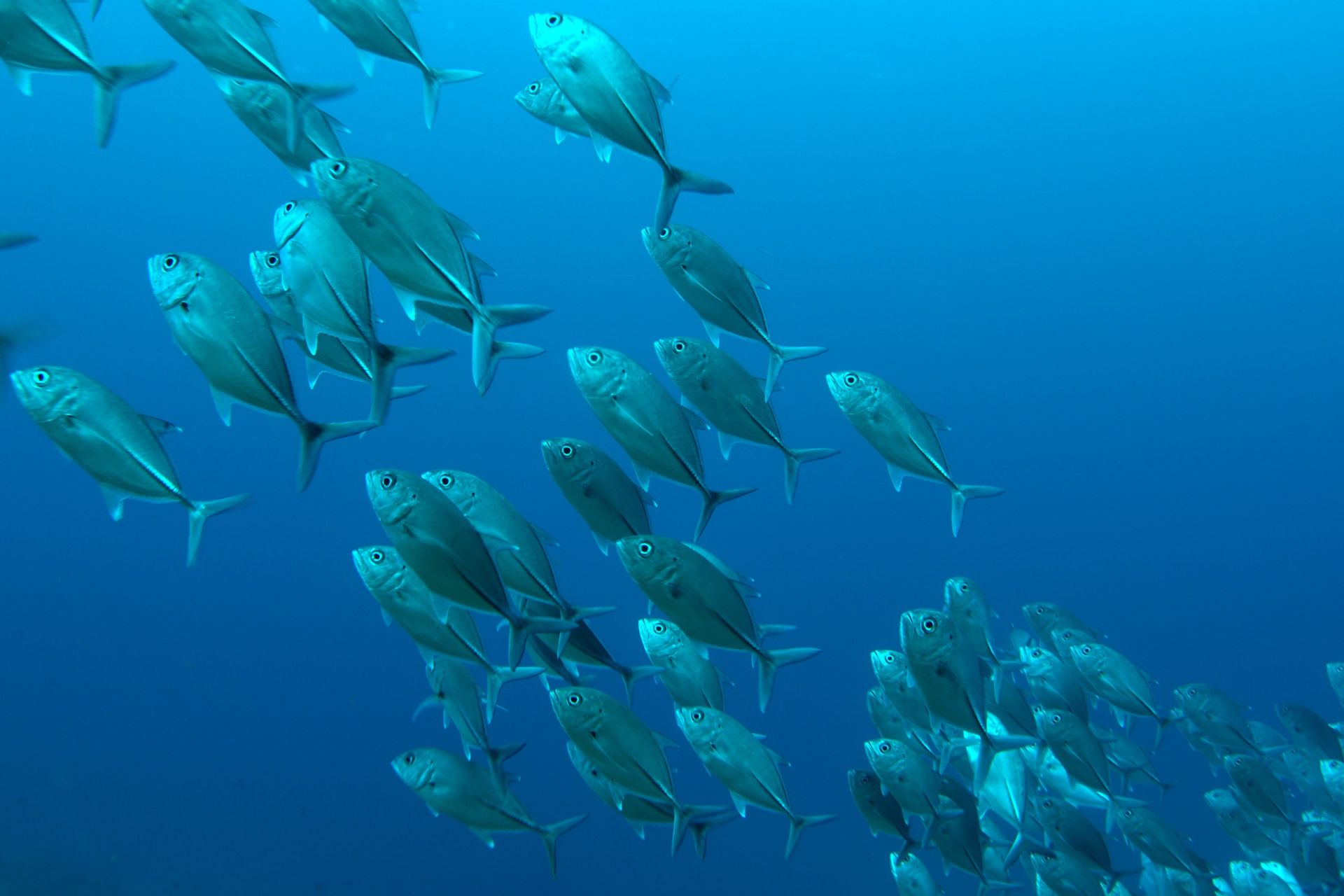Nothing less than food system transformation is required to address the scale and urgency of the health and sustainability challenges facing humanity. Thanks to recent landmark reports such as Food in the Anthropocene: the EAT-Lancet Commission on Healthy Diets from Sustainable Food Systems; IPCC’s 2019 Climate Change and Land; and FAO’s 2019 State of the World’s Biodiversity for Food and Agriculture, we are increasingly aware of the acute challenges preventing us from nourishing the world’s growing population while protecting the planet’s resources and biodiversity (Sustainable Development Goals 2 and 15, respectively).
This growing body of evidence may create a pessimistic outlook. However, the latest solutions being proposed and new flows of impact investments can transform the food systems that nourish the world and protect the planet for future generations. I am confident that there is enough time to design, resource and deliver solutions needed to address SDG 2 and 15 before 2030 – the SDG target year.
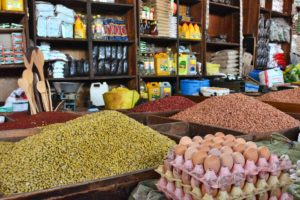
Related Topics: Diet Diversity in Low-Income Communities – Climate Change and Its Impact on Food – Role of Impact Investing in Combating Climate Change
The Interplay Between Food Systems and the Environment
The bidirectional relationship between nature, the environment, and climate change on the one hand and food systems on the other is increasingly being understood. New research demonstrates nature’s incalculable importance to our food security. In the end, all our food relies on natural systems. Our food production systems depend in countless ways on the plants, animals, and microorganisms that comprise and surround them. Biodiversity underpins the capacity of farmers, fishers and fish farmers, and livestock keepers to produce nutritious food.
We already struggle to feed and nourish the world. The number of undernourished people in the world rose between 2014 and 2017. Unfortunately, climate change and the rapid loss of biodiversity is adversely influencing food supplies. A 2018 summary of relevant research indicates that a carbon dioxide-rich atmosphere strips food crops of their inherent nutrients. By 2050, due to climate change, there could be an additional 4.8 million children undernourished; 175 million zinc-deficient; 122 million protein deficient; and many more at risk of iron deficiency.
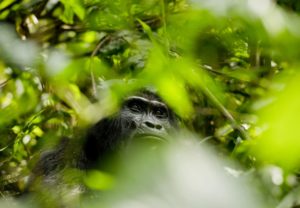
Moving from food systems to the environment, there is strong evidence that food production is one of the largest drivers of global environmental change due to its contributions to greenhouse gas emissions, land-system change, biodiversity loss, freshwater use, and interference with the global nitrogen and phosphorus cycles. An estimated 23% of anthropogenic greenhouse gas emissions is derived from agriculture, forestry, and related land use. In fact, this landmark UN-backed report finds that agriculture is one of the biggest threats to the earth’s ecosystem and is driving one million species to extinction.
Between 1971 and 2016 the global production of major food crops – wheat, rice, maize, and soy – increased by 116%, 133%, 238%, and 634% respectively. Most of these are produced by industrialized farming which causes severe environmental impacts. Of course, industrialized farming of monocrops has a clear logic to it – it simplifies and upscales systems to provide calories faster and this makes sense when people are hungry or even starving. However, the monocrops listed above cannot be considered healthy for humans or the environment.

What’s more, in the last ten years, worldwide meat production has increased by 20 percent. While populations in high and middle-income countries are the primary consumers, meat consumption in low-income countries is growing rapidly. In fact, the demand for livestock products is set to double in sub-Saharan Africa from 200 kilocalories per person per day in 2000 to 400 kilocalories by 2050.
A well-known example to illustrate the adverse trends of the food system on the environment is the palm oil industry. Global demand for palm oil has led to heavy deforestation of Indonesian and Malaysian rainforests. It has driven orangutans close to extinction. It has also made Indonesia one of the world’s largest carbon-dioxide emitters. Continued deforestation for food production is now threatening numerous other prominent species including rhinos, gorillas, elephants, and tigers. Another example of the adverse trends of our food systems comes from the seas. Since 1950, nearly 6 billion tons of fish and invertebrates have been taken from the world’s oceans, and aquatic ecosystems are facing huge pressures.

A Call for New Financing Mechanisms for Sustainable, Nutritious Foods
This clear, food-driven interdependency between human health and planetary health means that, if we do not rapidly move beyond “business as usual” and transform our food system, the current decline of natural systems that support modern food production will continue with serious consequences.
Impact investing offers a solution if we can direct it towards sustainable, nutritious foods. Impact investing has grown rapidly in recent years – encompassing over 8,000 deals, representing $200 billion in total assets. It is poised for further growth as all types of investors are increasingly looking to achieve both social impacts and financial returns.
With new data and the recent calls for more sustainable food systems, surely impact investments in sustainable, nutritious food value chains are increasing, right?
Editor’s Picks:
 “Hungry for data, starving the world”
“Hungry for data, starving the world”
 “Will we ever solve the plastics problem?”
“Will we ever solve the plastics problem?”
Unfortunately, this is not the case. The agri-food sector represents only 10% of total impact investments. Investment in other sectors, such as energy and financial inclusion, are often seen as more compelling and less risky. And, among that 10%, the vast majority of food and agriculture investments do not focus on nutritious foods. Further, recent analyses, which I’ve commissioned at GAIN, of agri-food funds in sub-Saharan Africa found that few have an explicit nutritional impact mandate. None have clear definitions of what foods are considered nutritious or sustainable. Some invest in foods of questionable nutritional value. Others are clearly adverse to the environment. In fact, about 60% of the financing to support smallholder farmers in LMICs goes into the coffee and cocoa supply chains. Also, impact investments in cereals and grains in Sub-Saharan Africa also heavily outweigh those in nutrient-dense fruits, vegetables, legumes, nuts, and fish.
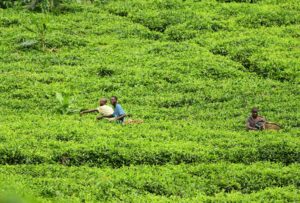
So, how do we unlock commercial investments for sustainable food systems?
First, we must establish a clear definition of a sustainable food system and shout it from the rooftop to the investment community. A common definition for a sustainable food system is one “that ensures food security and nutrition for all in such a way that the economic, social and environmental bases to generate food security and nutrition of future generations are not compromised.”
Second, we need guidelines on what is a sustainable, nutritious diet. Thanks to EAT-Lancet’s dietary recommendations, we can better identify what foods should be produced and consumed to achieve human and planetary health. This can help impact investors make better choices when placing their investments.
EAT-Lancet’s dietary recommendations are based on the assessment that there is a lack of harmonization between diet and its impact on the planet and that, in order to feed 10 billion in 2050, a universal “healthy reference diet” is needed. This reference diet comprises a range of plant-based foods, unsaturated fats, low amounts of animal-based foods, and small amounts of refined grains, processed foods, and added sugars. Figure 1 below is an illustration of this reference diet, i.e. the “planetary health plate.” Approximately half the plate is comprised of vegetables and fruits. The other half consists primarily of whole grains, plant protein sources, unsaturated plant oils, and (optionally) modest amounts of animal sources of protein.
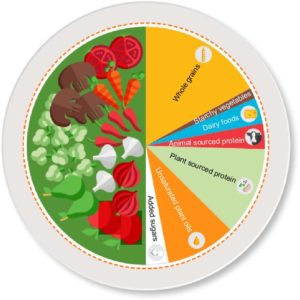
The healthy reference diet is designed to be flexible. However, further work is needed to translate it for specific contexts, especially for LMICs.
Substantial changes in the food we currently grow, as well as population-level dietary changes, are required – particularly in populations following “Western” dietary pattern. For example, those following a “Western” diet need to halve the amounts of red meat and sugar consumed and double the amounts of nuts, fruits, vegetables, and legumes. Fortunately, plant-based diets and alternatives to meat have hit the mainstream. A great example of this is the Impossible Burger, the plant-based patty from Impossible Foods. Over the past few years, the burger has been introduced to the world through fast-food chains and restaurants and is attracting a lot of investment. We need more of these relevant food innovations in LMICs.
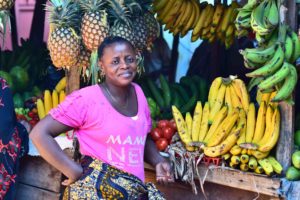
The Way Forward
With the above definitions and guidelines for a sustainable, nutritious diet in mind, here are four strategic questions impact investors must ask when placing their capital in agri-food investments:
- Will it produce better, more nutritious food (not just more food)?
- Will it help sustainably intensify food production (e.g. use new more sustainable methods, including intercropping and agroforestry)?
- Will it safeguard land and oceans by mitigating land clearing and overfishing?
- Will it reduce food losses and waste?
The food-driven interdependency between human health and planetary health is becoming increasingly clear. Food system transformation is urgently required to address the health and sustainability challenges facing humanity and achieve SDG 2 and SDG 15 by 2030. We must leverage impact investments as a part of the solution and ensure that they flow into sustainable, nutritious foods that are available for all.

All photos ©GSGarrett Images.
EDITOR’S NOTE: The opinions expressed here by Impakter.com columnists are their own, not those of Impakter.com.


